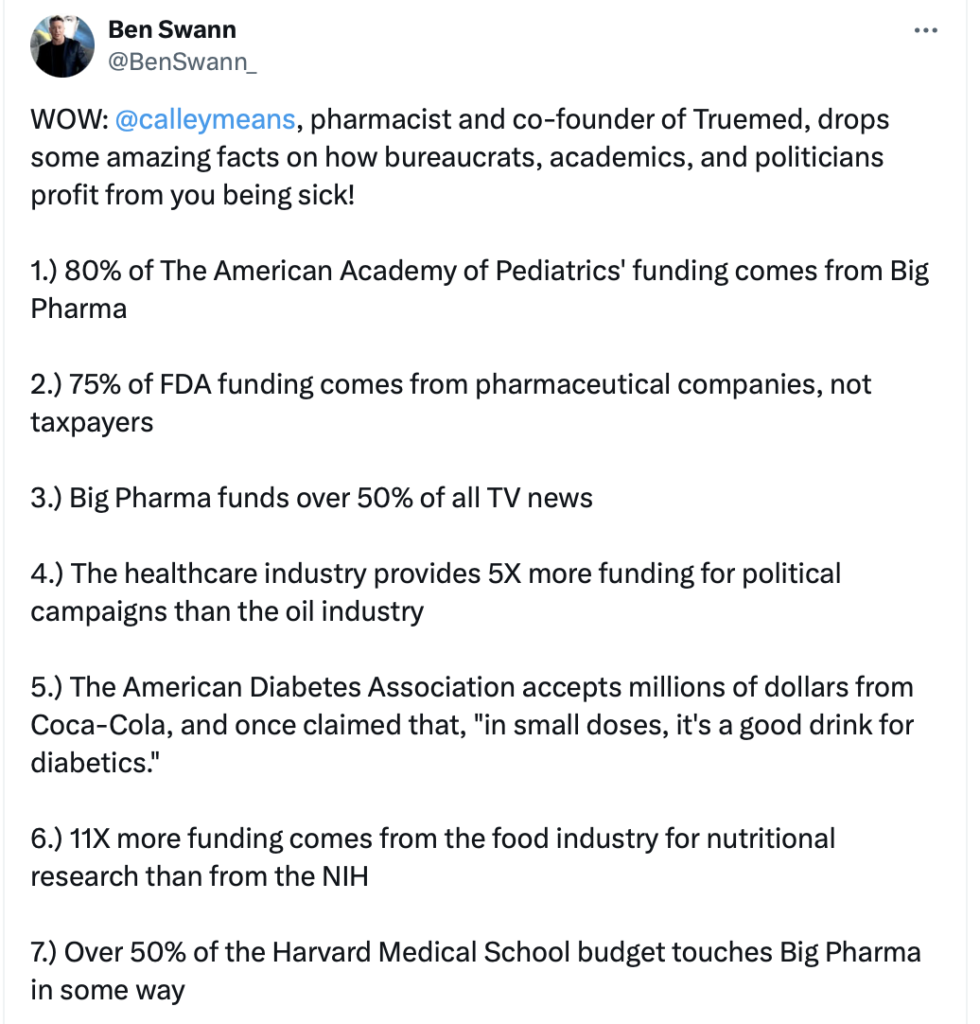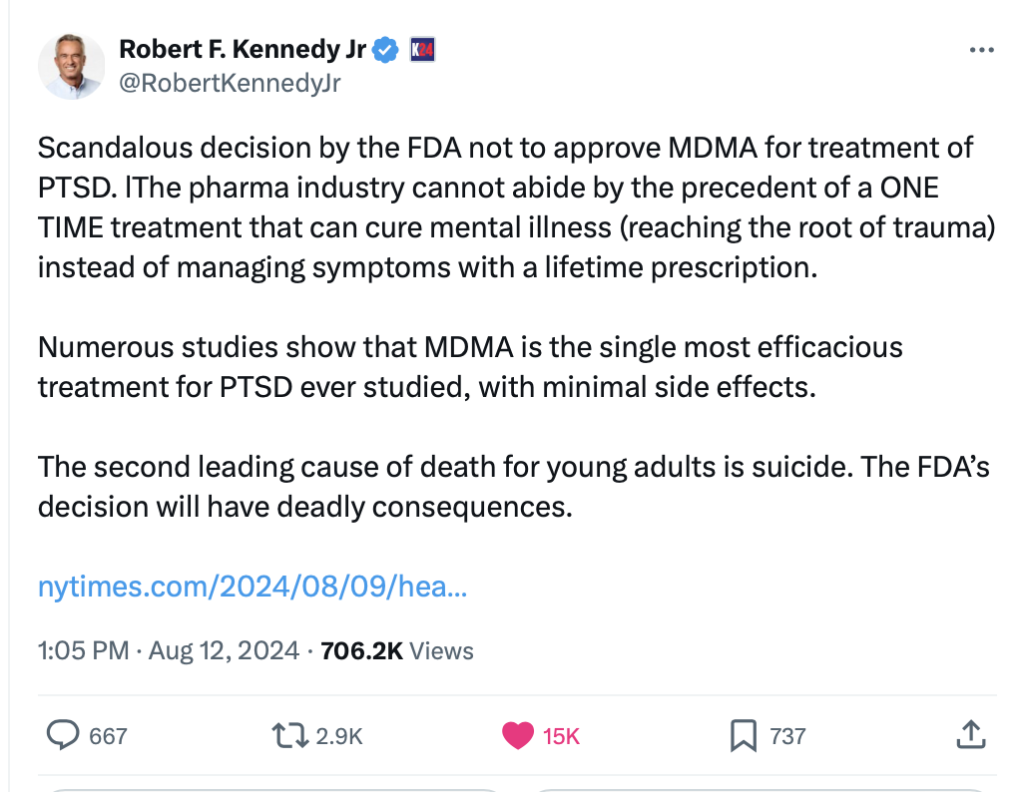I walk around assuming I know what autism is, but whenever the topic arises, I am hard-pressed to define it. I found this video to be helpful: Peter Boghossian inverviewing Jill Escher:
PB:
First of all, who are you? How did you get into it? . . .
JE:
Sure. Well, thanks so much for having me and and for addressing this really important subject that even your son knows something about. So I'm Jill Escher. I wear a bunch of hats in the autism world. Most importantly, I'm the mother to two children with severe non verbal autism. Johnny's now 25 and Sophie is 18. I have another son as well, who's 27 but he's not diagnosed with autism. And over the years, I've become increasingly involved in the autism community on many, many levels. Right now, I serve as president of the National Council on severe autism, which, as the name implies, is a national advocacy group. I been president of Autism Society San Francisco Bay Area, and I'm still on that board, and I'm I run a philanthropy called Escher fund for autism that funds and promotes autism research, especially in the realm of causation and some other things too. But that's enough.
PB
What is it?
JE
Maybe we'll start there and then go into prevalence. What autism is is a very sticky, tricky question, but generally, what it refers to is a bunch of different characteristics and traits that kind of hang together in a kind of syndrome, like way, but it's not a syndrome, so it's classically defined in the DSM five as really two co occurring traits. One is abnormal social communication and the other is repetitive behaviors. And those can occur in many ways and to many different degrees, which is why we see all this heterogeneity. But in addition to what you see in the DSM V, there are a lot of other things that tend to cluster, you know, with autism. For example, sensory sensitivity. Like, you know, my kids are constantly plugging their ears. I have to put headphones on them. For example, anxiety, and my son suffers a ton of anxiety, which can become incredibly explosive. Other things such as difficulty learning, in flexibility in behaviors, lack of abstract thought is really another kind of foundational part of autism. So it's really a lot of different things, and they tend to hang together. And for lack of having a better diagnosis. Clinicians slap autism on a bunch of different presentations, clinical presentations that have these combined to one degree or another and with different traits.
PB
So you've you've written that the prevalence of autism is increasing, and so I was wondering if it's possible the diagnostic criteria changing or expanding, rather than the rates of autism increasing, right?
JE
So that seems to be one of the most fundamental debates in autism. Are the rates truly increasing of this psychopathology, of this neurodevelopmental disorder, or are we just changing the diagnostic criteria to encompass a greater number of children? And I strongly argue that it is the former that we are actually seeing a very dramatic, very obvious increase in neurodevelopmental pathology among children in the US,
PB
just, yeah, I was just gonna say cross culturally, or
JE
In the industrialized countries, that where we've done this epidemiological work, it's very evidence that evident, that this is true, even when we hold the definition constant, right, Even if we're looking at the objectively same criteria for inclusion, we see these dramatic increases. I can give you one example here. I'm in California, and we keep very good data on our developmental disability population. We've done so for decades, really, since the 60s and 70s, because we have a specific legislation that their states don't have. But what we've seen, for example, is an increase in autism in our developmental services system, which only serves the more severe portion of the autism population, from about 3,000 in the mid 1980s to over 180,000 today. Right? And that is obviously increasing at a rate much higher than the general background population increase. When we look at the CDC data again, they're holding the case definition constant and other other federal. Role data, we see an increase from less than 1% 20 years ago to about 3% today. So this is, and I can cite, dozens of studies across from epidemiology to education to social services to other forms of data that we see from, for example, hospital systems, the same exponential curve, even when we're holding the case definition constant. Now that's not to say there isn't also an increase, especially in that very high functioning level that we're including that wasn't included before. I will also say that is true. So I think both are true. But what's so alarming is that even rates of the more profoundly impacting autism has increased,
PB
so that causally, that the reasonable person can infer fact, the inference would have to be that it's environmental,
JE
yes, so I would argue that this raises very important, urgent questions about what might be raising these rates of abnormal neurodevelopment. Because what autism essentially is, I talked about the behaviors and how it manifests, but what it is on the inside is abnormalities and dysregulation of early brain development, starting when the baby is a fetus, mid gestation, when the brain when the neurons are being born and they're growing and they're proliferating and they're migrating and creating the brain and what we've seen in the field of neuroscience is very, very strong evidence that autism, for the most part, there are exceptions, of course, but for the most part, is the result of Abner, abnormal and dysregulated early brain development. So what is causing that? That is the $64 billion question in autism today. . . if we're going to talk about neuroscience, your autism is complex, and they find, you know, different parts of the brain are affected differently in different people. There's not one thing, but there is one. If there is one bottom line, it is in the cerebral cortex, especially with the frontal cortex, they find abnormalities in how the layers of the cortex are formed and how those neurons connect and how those synapses work. Now, I don't know. I mean, we probably don't want to get too deep into neuroscience. This is not a science podcast, but I would start there when we think about what's happening with autism and how it develops early in utero, and how that relates to as I said, you know, there's these dysregulations that could be genetic, but could also have other causes as well.
PB
Now you use the word before, and then I have a few questions that are just pounding out of my brain that I have to discharge, but you use the term before disorder? Yeah, and I know that that is not that must not be without controversy.
JE
So language has been highly controversial in autism, as it has been in other areas of the culture war. So autism has been caught up in the culture war, just like so many other things, and it's been really unfortunate, in my view, because I don't think autism is a culture war question. I think autism is a question of, you know, pathology, you know, of neuropathology, and how we address that scientifically, and how we deal with it in terms of policy. Of course, everybody wants the best for our children with autism. I certainly want the best for my children. I want the best for our community. I literally spend hours every day serving our community to make sure our kids are included to the extent possible, that they get access to the best programs possible, the best therapies possible, can live the best lives possible. I'm on board without 100% what I'm not on board with is this kind of systemic trivialization of autism, which is a what you see in the scientific literature, which you see in the neurodiversity movement, where they're trying to wipe away words like disorder, like risk, like, oh gosh, there's, there's so many of them. We're not allowed to talk about, you the severe behaviors of our children. We're not allowed to talk about the aggression. The property destruction, the self injury, the elopement, you know, the pica, like my daughter does, the ingestion of inedible objects. You know, these things, apparently we're not allowed to talk about because they cause stigma. Well, okay, autism itself is not stigmatizing. That's not stigma comes from something else, other than an essential part of your disorder, right? Stigma comes from, you know, society or individuals, you know, deciding that you are lesser than Well, that's a secondary question, but we're what a lot of the neurodiversity advocates in academia, really entrenched in academia, are trying to do is kind of obliterate the vocabulary of autism, so that we only have these neutral terms left. And those neutral terms do not adequately describe people like my son, my son Johnny, who's 25 and nonverbal, has a functional level of probably an 18 month old, if that, probably less than that, maybe more like a 12 month old. He can't really do anything for himself. He can't dress himself. He can't prepare food, he can't take care of his own hygiene. He can't read, he can't write, he can't talk. He can't use a phone. He can't functionally operate anything he before he was on the right medication.



